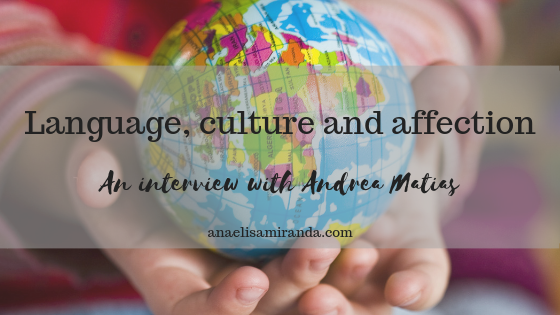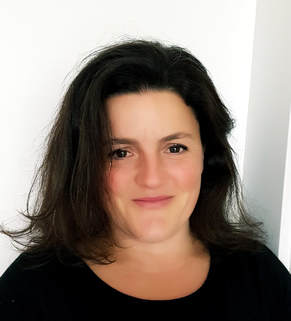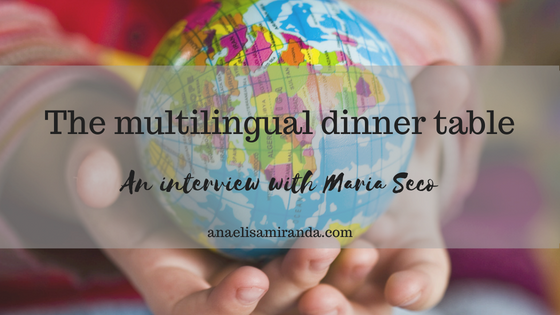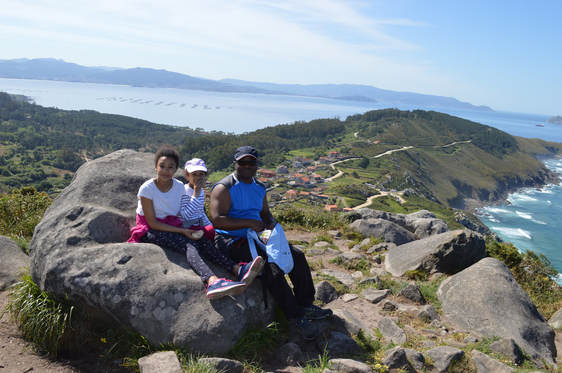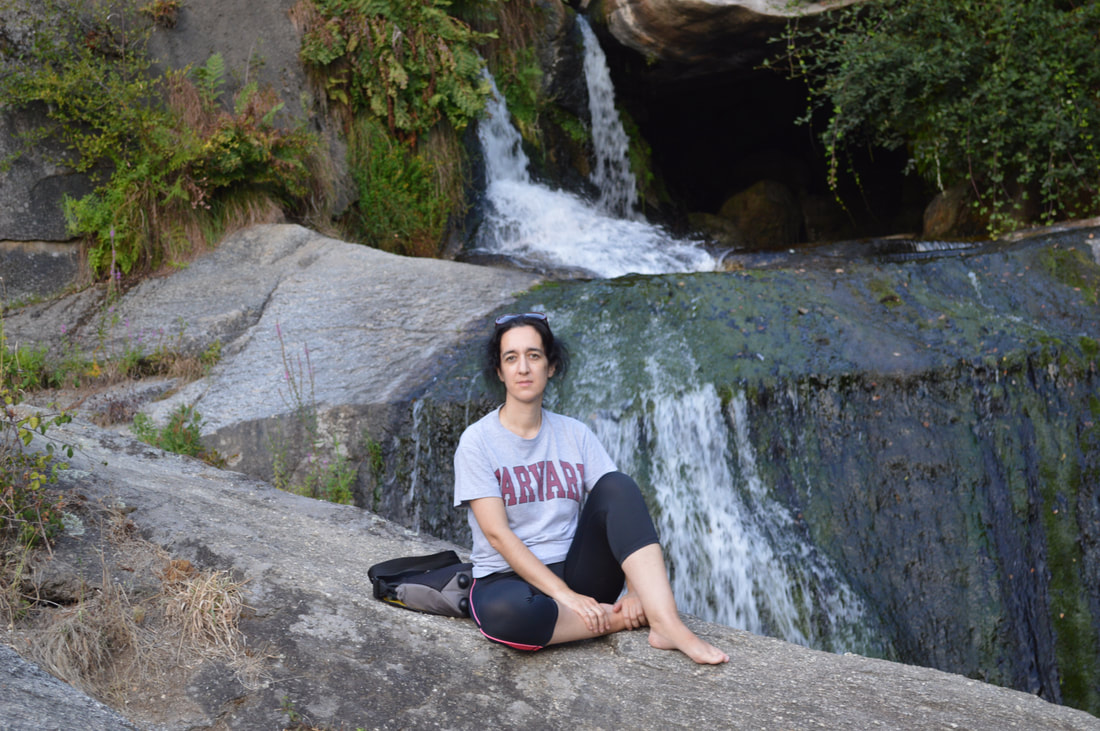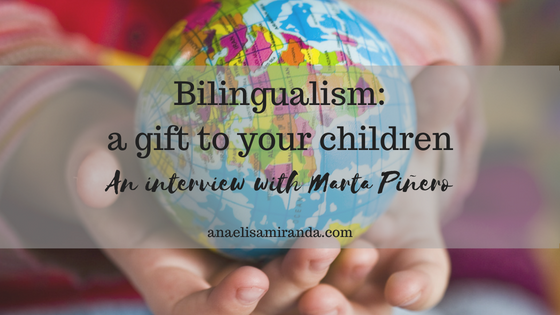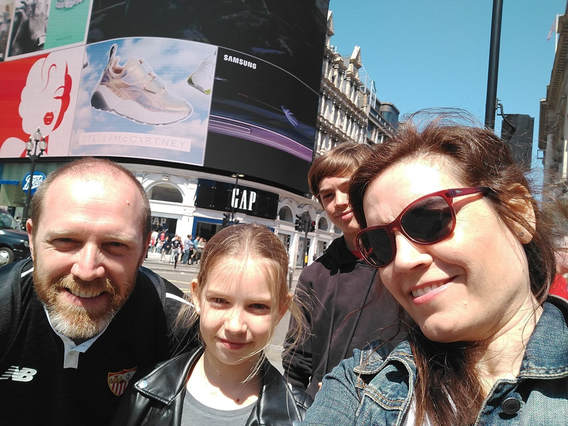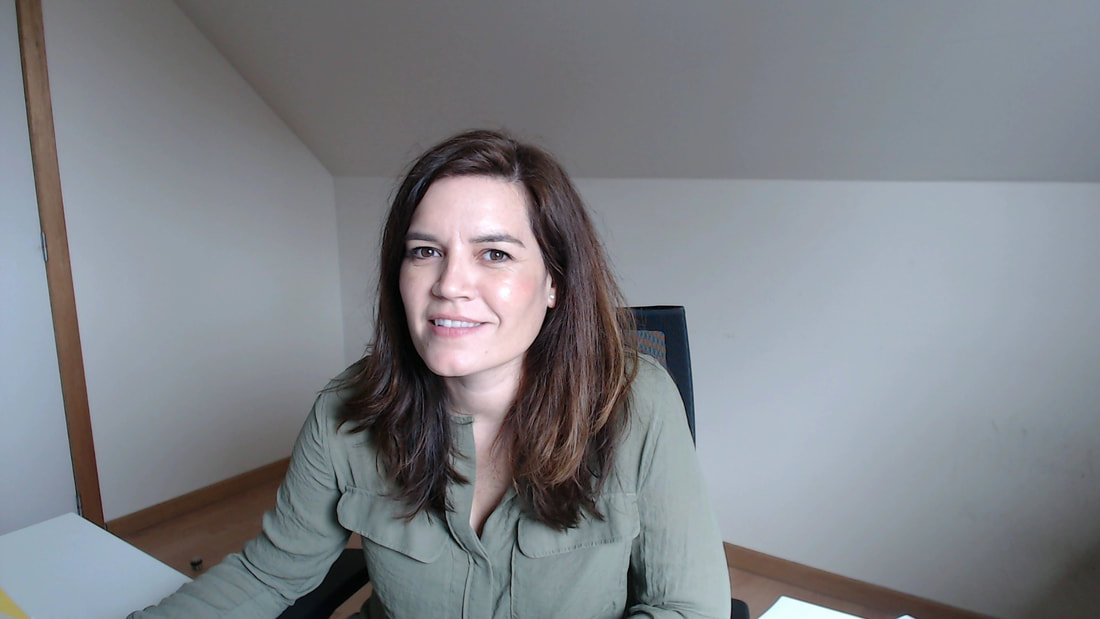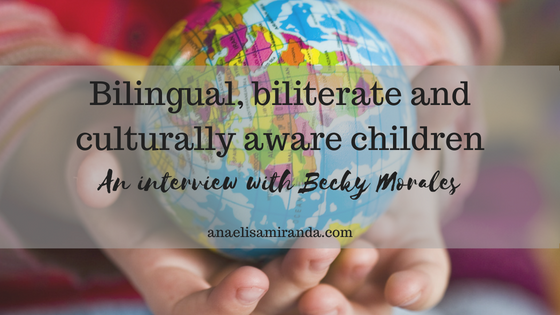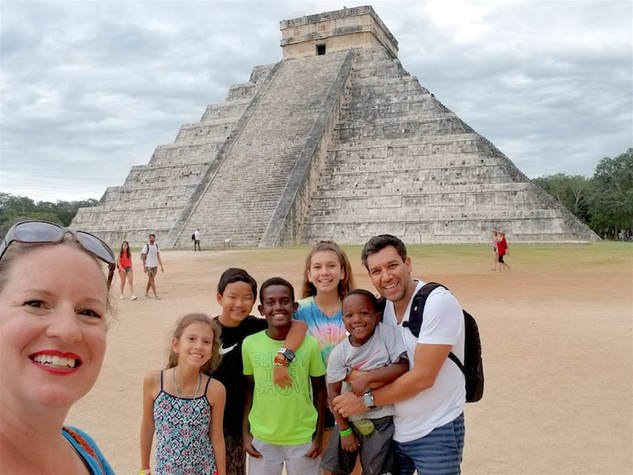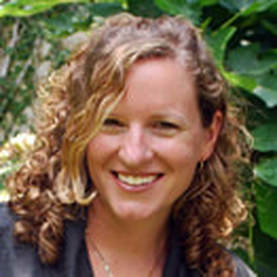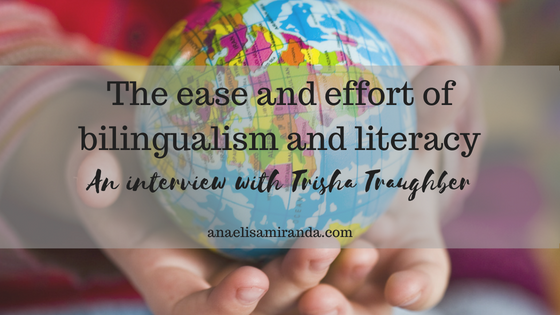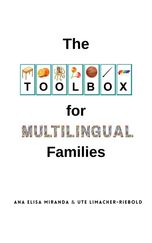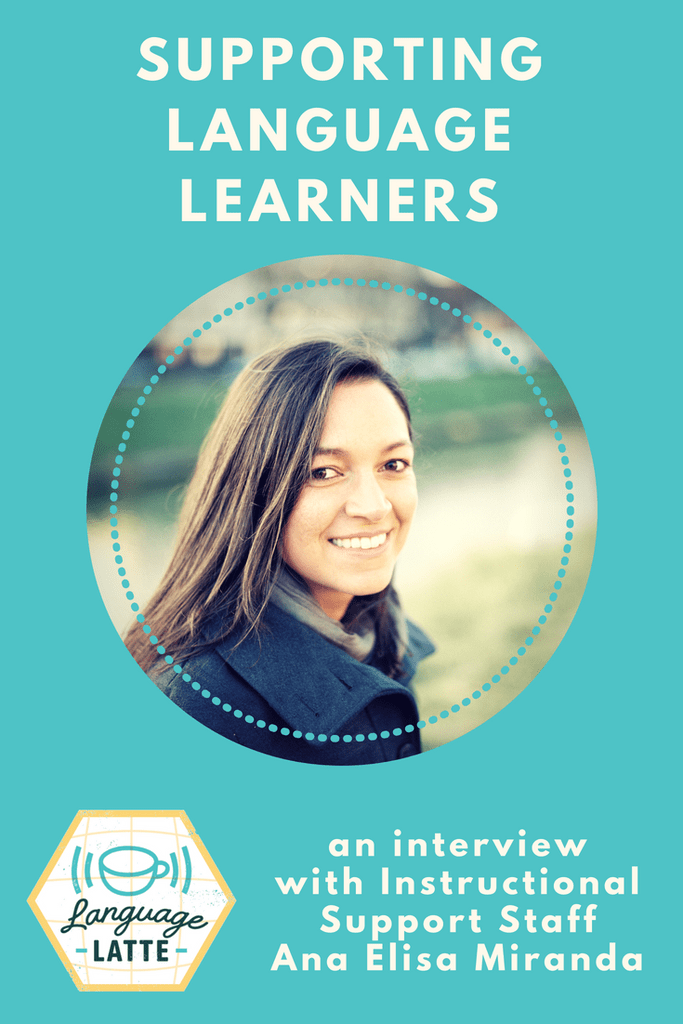Andrea is a Portuguese mom of two little girls living in England. She wants to raise her daughters bilingual, biliterate and multicultural.
However, she's the only minority-language speaker around them and the beginning was tough. On this interview Andrea shares how it's never too late to catch up and enjoy the results!
However, she's the only minority-language speaker around them and the beginning was tough. On this interview Andrea shares how it's never too late to catch up and enjoy the results!
Tell us a little about yourself and your family.
I came to the UK to study Arts Management, as London was such a cultural powerhouse. The plan was to return to Portugal after graduation but I adapted so well, London was such a vibrant city with so many opportunities in the cultural sector that I decided to stay for another year or two. 20 years on, I find myself with a house, a dog, a British husband and two wonderful children aged 3 and 5 years old.
What’s your approach for raising them bilingual?
Fun and affection. We have a loving, respectful and affectionate relationship and I try to make learning fun. Most of the time they don’t realize they are ‘learning’. I think it’s best if they have an interest and feel a connection with the language and culture, otherwise they just feel forced and eventually reject it as they grow up.
Can you tell us about one of your proudest moments?
So many! When the girls started saying “Eu adoro-te” which in Portuguese means “I adore you”. And anytime they show interest and enthusiasm for my mother tongue and culture.
What has been the biggest challenge so far?
I have no Portuguese family in the UK and until recently, no Portuguese family friends. Being the only person in their lives who spoke Portuguese was tough and having lived here for so long speaking English 99% of the time, it became my default language. I have also become British in many ways and over the years virtually disconnected from my Portuguese roots. I’ve learned in recent months that if I reconnect with my language and culture, that makes it easier to remember to speak the language with the children. That’s why I started the blog a year ago. Last summer, I realized that me just having a Portuguese passport was not enough. I had to speak a lot more in Portuguese and introduce the girls to the culture as well, otherwise they would never become true bilinguals.
As your daughters start learning to read, will you introduce Portuguese literacy too? How?
Oh yes, for sure! I always read Portuguese books to them. We also always had age appropriate books, for example, board books with images and names of the items in Portuguese so they got accustomed to the script. In the past year we started using materials such as activity books and played Portuguese schools at home. The eldest just started weekly Portuguese Lessons offered by the Portuguese Government.
One of the keys to successfully raise bilingual kids is consistency. How does your family stay motivated and focused?
It’s so hard! Especially if you’re the only minority language speaker. Life gets on the way and it can slid down the chain. I started the blog to keep me motivated. I keep reading and talking about the subject, and coming up with new ways to motivate me and the girls. With what I know now, if I could start again, I would have started a routine from the start whereby I only spoke Portuguese to the children. That would have made consistency a lot easier to embed in our lives than trying to catch up.
What would you tell parents who hesitate about teaching their kids to read in multiple languages?
I understand why they would feel that way but my tips are:
- Get informed, go to credible sources of information about bilingualism and literacy to dispel any myths and concerns. Then choose your strategy and stick to it, be consistent but also prepared to adapt if that is the best for your family.
- Start by building a solid foundation where kids are happy and comfortable around the language. Make it fun, not a chore.
- Any efforts you make towards literacy will help. Break it down into small achievable steps and take it from there. Ana Elisa has plenty of tips for literacy development.
Last summer my eldest told me she didn’t like Portuguese and for me not to speak to her in that language. It was a shock and made me realize how important it was to me that they were bilingual and how little I had been doing to make it happen. I started reading on the subject, talking to other families and experts on the matter, and thinking much harder about how to tackle it.
I started the Mother Tongue Notes blog as part of that process, to keep me motivated on our bilingual journey. I felt passionately about raising bilingual children and I realized that there were other parents in a similar situation who struggled to keep it going. So I made it my mission to encourage and inspire other parents to raise confident bilingual citizens of the world.
In the blog I share our own experiences and learning. I know what it is to be a busy parent, who has no academic qualifications in linguistics and in teaching, so I keep my posts and resources easy and actionable. It’s all about baby steps and building a solid foundation.
I also share and comment on research and topical articles on my social media channels.
| Andrea is a Portuguese mum of two living in London. She’s a marketing and small business consultant and has a blog about raising bilingual children - Mother Tongue Notes. You can also find Mother Tongue Notes on Facebook, Instagram and Twitter. |
Get posts, resources, meet other bilingual parents and ask all your burning questions about bilingualism and literacy:

